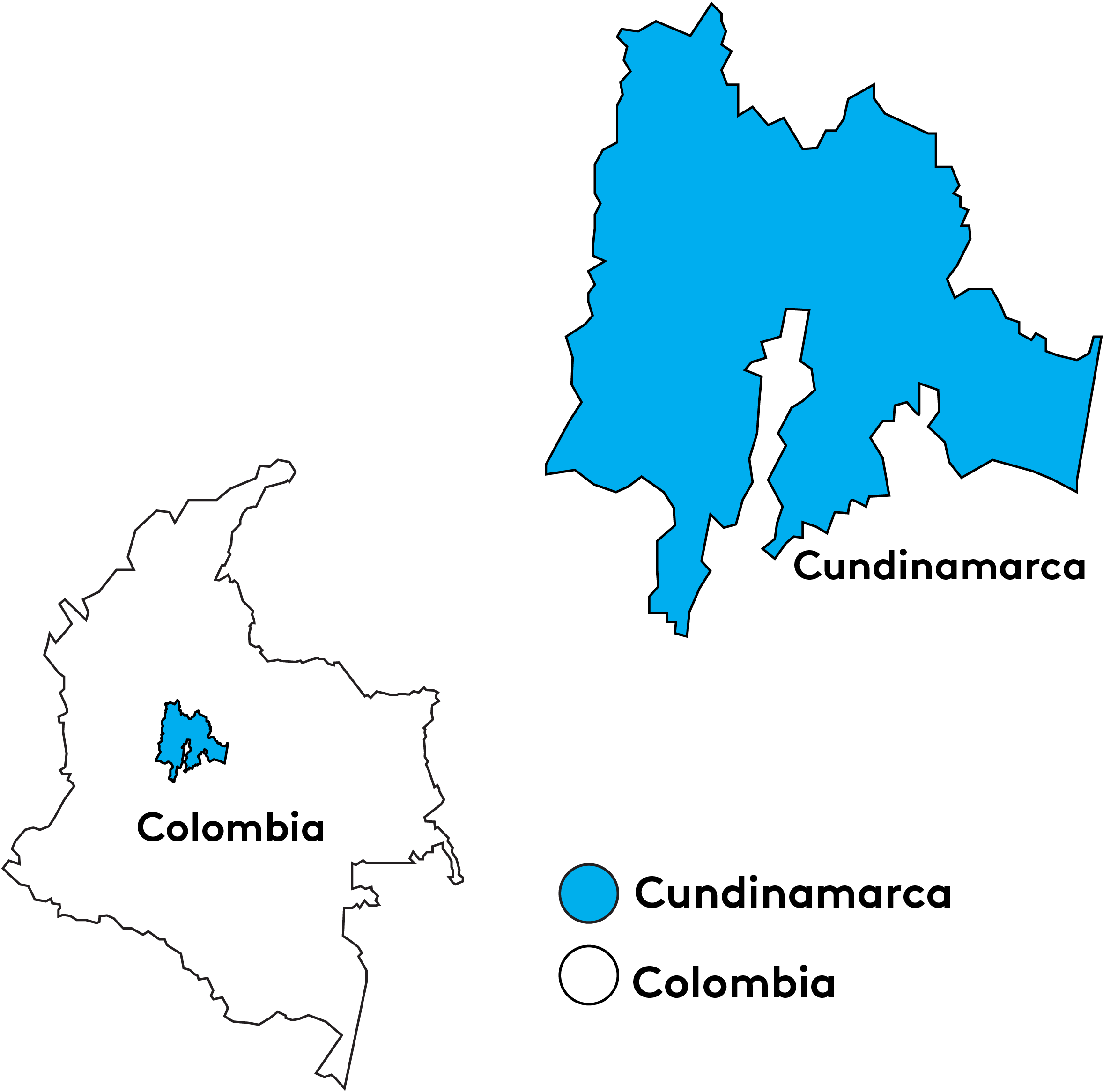This coffee comes from five certified organic producers in the community around Silvania, Cundinamarca. The lot is built by Francisco Tamayo, who oversees dry milling at his mill on Finca La Primavera in Silvania. Producers wet processed the coffee on their farms before delivering the parchment to PROSERVICOL, where Francisco is also the founding manager. The Proservicol Coffee Project was born in 2012 from the dream of healthy, sustainable, and delicious coffee production in Colombia. Beginning with La Primavera, Proservicol now works with many producers in the community and provides training and quality assurance.
Contributing Community Producers:
Carlos Diaz grows 35,000 coffee trees of the Castillo, Caturra, Colombia, and Maraogype varieties on Finca Las Margaritas in the Cachipay municipality. He fermented and washed his coffee prior to drying in on patios and in silos and contributed 50% of this lot.
Ana Mariela Buitrago grows 6,000 trees of the Castillo, Tabi, and Typica varieties on Finca La Primavera in the Fusagasugá municipality. Ana Mariela washed and patio dried her coffee and contributed 12% of this lot.
Roberto Pineda grows 12,000 Castillo trees on Finca Los Sauces also in the Fusagasugá municipality. He washed and patio dried his coffee and contributed 12% of this lot.
Álvaro Arcila grows 78,000 Castillo trees on Finca Cartagena in the Anolaima municipality. He washed the coffee and dried it on the patio and in silos to contribute 17% to this lot.
Mercedez Sarmiento grows 6,000 Castillo trees on Finca Leticia 2 in the Silvania municipality. She washes and patio dries the coffee and contributed 9% of this lot.
The producers of organic coffee in the La Primavera community also understand the importance of environmental preservation and of farming in symbiosis with the natural world. The nearby Sumapaz moorland is an important source of freshwater for the city of Bogota and has been a natural reserve since 1977. The reserve includes more than 5,000 hectares of native forest and provides a vital ecosystem for the region’s biodiversity.
Thanks to this rich natural landscape, the soil in the communities around La Primavera is filled with the nutrients needed to grow highly productive coffee trees. Coffee is shaded by regular cloud cover and enjoys the climate conditions of warm days and cool nights. Farmers grow citrus, vegetables, and berries in addition to coffee.
Organic producers in Cundinamarca care for water sources and avoid all manner of illegal hunting and deforestation. Producers use organic compost as fertilizer and make custom nutrition plans based on the needs of each farm location. This sets an example for neighboring farmers that is it possible to provide family and local employment, produce great coffee, and work using environmentally responsible methods.
















